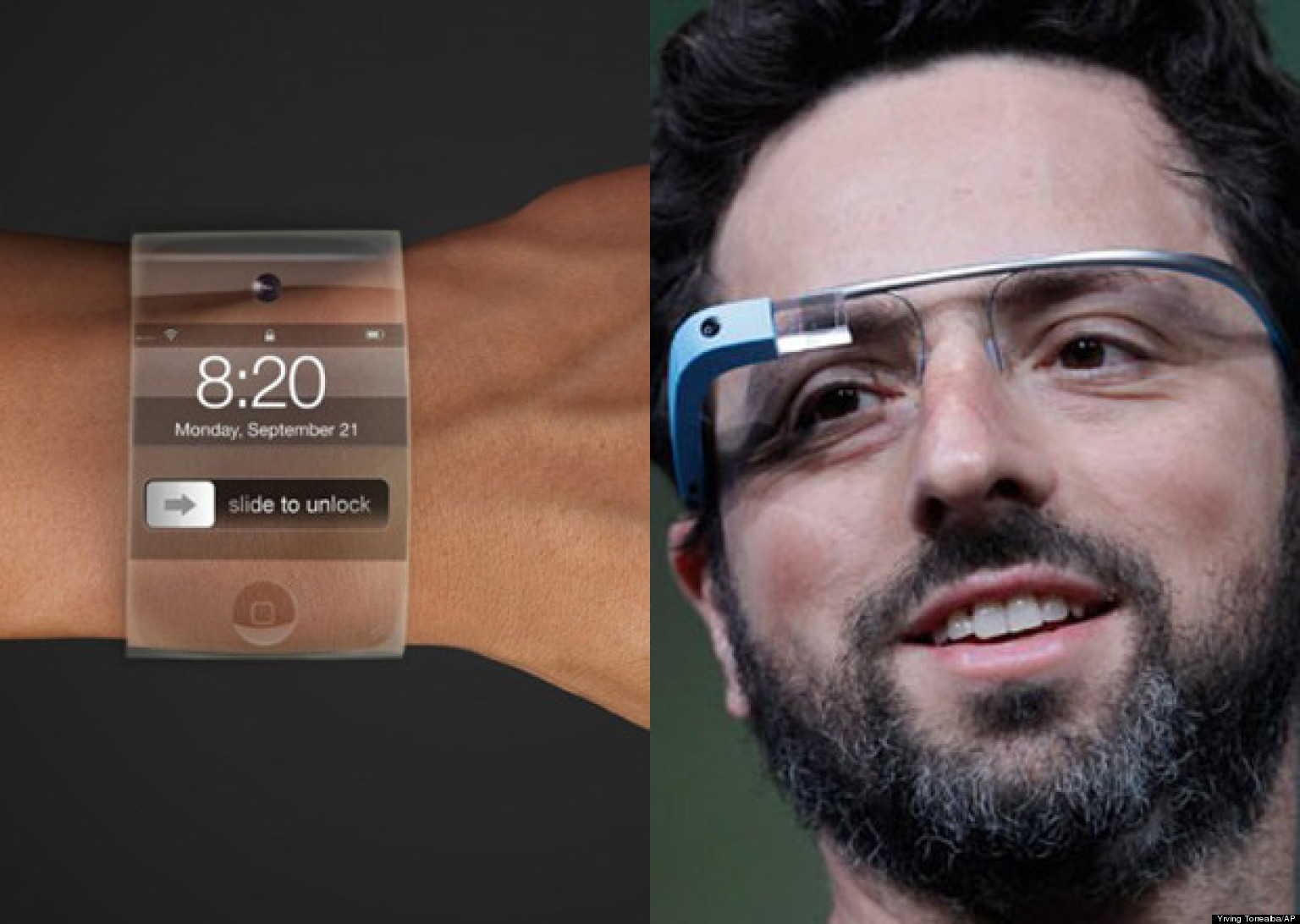Less than a month ago, I wrote a piece about why I'm more excited about the rumoured iWatch that Google Glass. Today, +Mike Elgan, a globe trotting technology blogger, wrote an article for cultofandroid.com (link) that came to similar conclusions, but focused heavily on what a Google watch might be like, and what specifications it might have.
Although I agree with his sentiment that a watch and Glass are just two parts of the unfolding next era in mobile (wearable) computing, I disagree with his idea that a wearable computer has to do everything that the computers that came before it have to do.
When we moved from desktop to mobile, the biggest problem for developers, publishers and advertisers was the impossibility of a big screen with lots of space for information. But even though our phones had less on them, we still expected a lot from them. That's because we live in a time where devices are still expensive, and we demand complete experiences from them. We've moved considerably far down this road, and many of us now have a powerful computer in their mobile device. I can't imagine spending another €400-600 on a device like Glass, or even €100-200 on a device like Elgan's watch, when my phone already serves these essential purposes.
For one thing, a watch does not need a camera. Can you imagine how weird you would feel taking a picture with your wrist, when your phone (or even your Glass) will definitely be more (or just as) convenient and higher quality? What the watch does need to do, is keep things really simple, and just tell me the really important things happening in my cloud.
- Message or call notifications, with haptic feedback
- Navigation, using the GPS from my phone
- Google Now, using the data from my phone through bluetooth (I don't believe in any need for WiFi or cellular here)
- Some app functionality - Spotify can tell me what song is playing, with few buttons; Facebook can tell me if I'm tagged in something; no apps should try and mimic the mobile features my phone can do. I don't want to post things, I don't watch to record things, I don't want to "like" or "download" or read anything for longer than 3 - 5 seconds. 99% of the time, things on my watch should be 'see and dismiss'.
If a Google watch takes voice commands I'd be truly disappointed. Voice is great for Glass, and I get why it's there. But on a watch where we have a touchscreen and a free hand of fingers, Google need to think about making very little to interact with. What would Jobs do? Remember how he said a device is a collection of decisions about which features you want and which you don't? I think voice control is best left on the phone, or on Glass, if you're lucky enough to own one.
Elgan is thinking too much about a smartwatch bringing another computing leap with it, with tonnes of features and functionality, and all the gizmos and flashing lights. I think the watch should be simple, with minimal UI, minimal functions, and minimal tech. It should market cheap, as a neat accessory to your phone. As long as it does a great job of delivering my cloud services, we'll have something that I can buy into.





